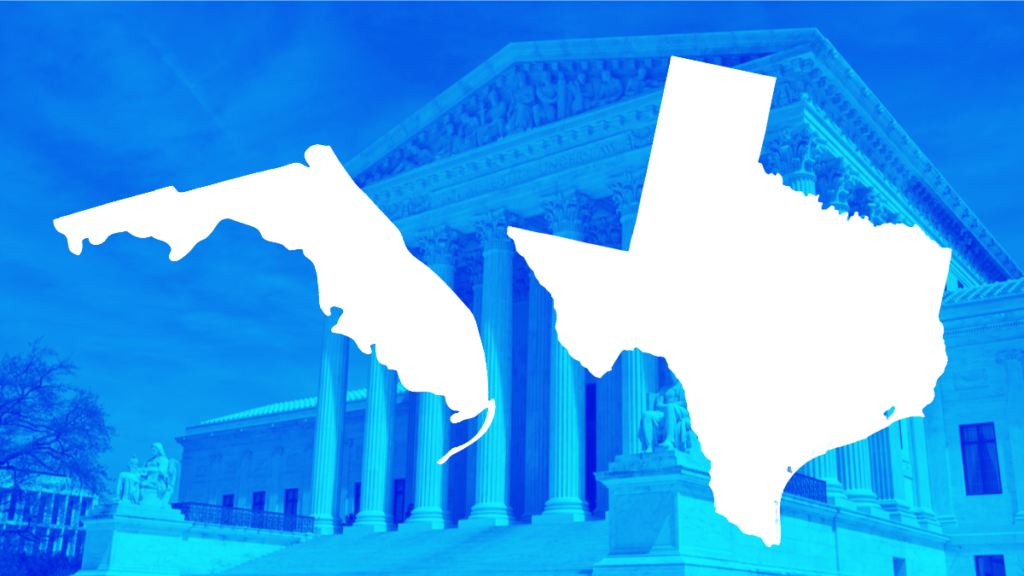The United States Supreme Court is set to release opinions on two critical social media cases, NetChoice v. Paxton and Moody v. NetChoice, involving laws from Texas and Florida. These cases are not just controversial but hold significant implications for the future of social media regulation.
Getting these cases right is of paramount importance. Social media serves as the modern public square, where platforms claim to offer neutral services. However, this neutrality is often questionable as platforms frequently engage in censorship of individuals and organizations with certain ideologies. A majority of Americans suspect that social media companies censor disfavored political viewpoints.

Conservative users, organizations, and religious messages have been particularly targeted, with platforms labeling their messages as “hate” or “misinformation” to silence these voices. Under the guise of “standards” or “policies,” these platforms have censored, deplatformed, and shadow-banned conservative viewpoints through selective rule enforcement.
In response, Texas and Florida passed laws to restore trust in social media. These laws require transparency in content standards, without mandating that companies platform everyone. They simply demand even-handed application of content standards. Social media companies can avoid these laws by honestly acknowledging their selective enforcement policies instead of pretending to be neutral public services.
However, social media companies argue they should not be accountable for their subscribers’ speech while also claiming the right to censor speech due to “editorial control.” The Babylon Bee, a satire site, and its news counterpart, Not the Bee, have experienced this firsthand. Facebook accused The Babylon Bee of “inciting violence” over a satirical piece, and Instagram penalized it for sharing an article critical of mask mandates. Twitter suspended The Babylon Bee’s account for “hateful conduct” when it named Dr. Rachel Levine “Man of the Year.”
One pivotal question in NetChoice is whether social media companies are purely private entities or “common carriers.” This distinction will determine if they have their own free speech protections or must respect their subscribers’ free speech rights. The outcome will affect everyone, as continued censorship by these companies could stifle diverse voices and ideologies. Social media executives, regardless of their political stance, could become gatekeepers of acceptable speech, threatening freedom of expression for all.
Archbishop Salvatore Cordileone and Focus on the Family President Jim Daly emphasized the importance of protecting religious speech in the public square, noting that the American experiment has thrived on the freedom of religious believers to speak and practice their beliefs publicly.
The Supreme Court’s decisions in these cases will have long-lasting implications. It is crucial for the Court to uphold principles of free speech and ensure that social media platforms apply their standards fairly. The future of truth and freedom is at stake, not just for today but for generations to come.
this article was originally published on USA TAAZA TIME










